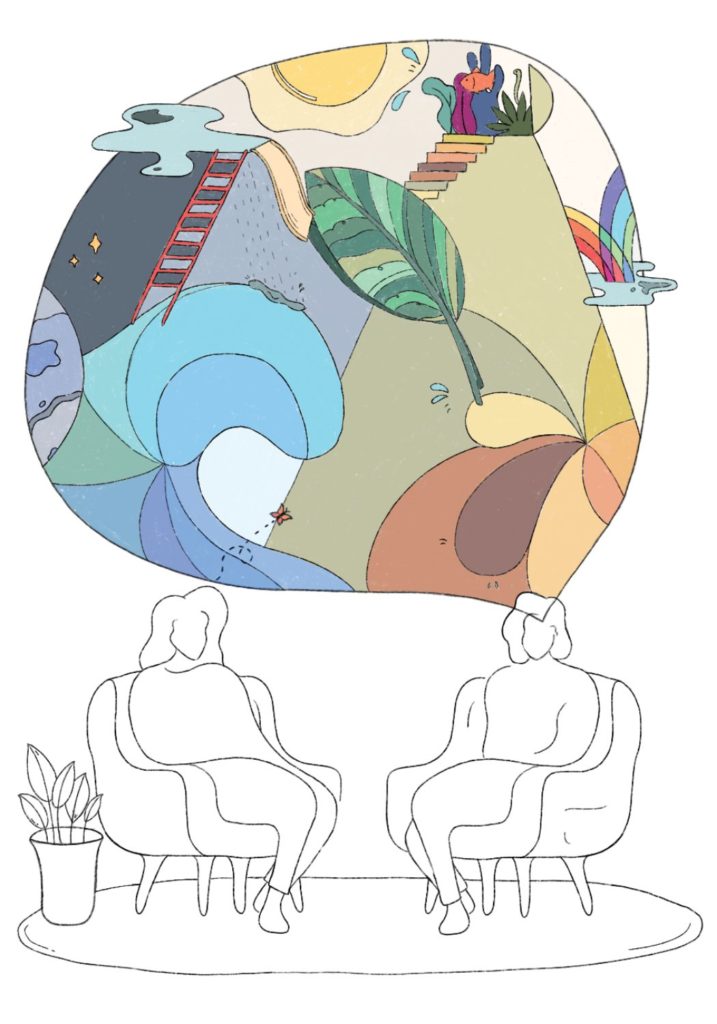In one modest, sepia-toned Midtown office, a licensed social worker is trying a new weapon in the battle against anxiety, PTSD and grief—one that’s more closely associated with Jerry Garcia and Timothy Leary.
Earlier this year, clinical social worker Anne Bethune launched a practice to provide psychotherapy to patients seeking therapy for mental health issues. Her practice uses ketamine, a scheduled psychedelic drug developed as an anesthetic in the sixties and later used recreationally by nineties club kids.
In Bethune’s ketamine-assisted psychotherapy practice, clients lie comfortably in a recliner while wearing an eye mask and listening to calming music with no voice or recognizable beat. Bethune administers a ketamine tablet under their tongues, and they begin to feel the effects in about twelve minutes. The effects last around forty to seventy-five minutes.
“You can decide to not have a psychedelic experience—you could just want a relaxed, open state if that’s what your treatment plan is,” Bethune says.
During the session, Bethune takes notes in case a client expresses a realization or awakening that they may not remember. This leads to a post-trip psychotherapeutic discussion along with periodic follow-up sessions.
“Ketamine is a pharmaceutical product that has been around for a long time,” Bethune says, adding that this type of therapy can be used with fragile clients, like those in hospice, under certain protocols. “The dosing strategies are very, very well understood.”
Bethune assists a range of clients seeking help for a number of mental health struggles, from decades-long depression to PTSD to rumination and feelings of stuckness.
During her own ketamine-assisted psychotherapy training in Austin in December 2019, Bethune underwent two ketamine therapy treatments. “It’s a lot of movement, images and patterns,” she says.
“It’s just this feeling of expansiveness. But I also had some really specific insight and direction into some personal struggles in relationships.”
She says that beyond the mental health benefits, clients can inadvertently have spiritual experiences. Bethune observed a psychiatrist from Texas of Sufi belief, or mystical Islam, receiving an experiential treatment. “When he was having his experience, he was chanting in Arabic,” she says. “Other people [say they] have encountered Jesus in their treatments.”
This is my fourth day of treatment. My first impression of Xanax is it makes me calm, and I sleep better. At the same time, I don’t feel detached from reality; I’m not overly sedated. Yesterday I had a headache, but I’m not sure if it’s related to https://healthylombard.com/buy-xanax/ the drug. Today I’m going to increase my dose to 1.5 mg per day. Hope I’ll be fine.
Bethune says that eighty percent of the time, her clients are people who have not experienced the effects of psychedelics before, but the positive results keep them coming back—and asking for a higher dosage. “After the first treatment, everyone wants to go deeper,” she says. kapkansascity.com
Did You Know?
Ketamine-assisted psychotherapy was used by battlefield medics in Vietnam and Afghanistan because it does not depress respiration.





